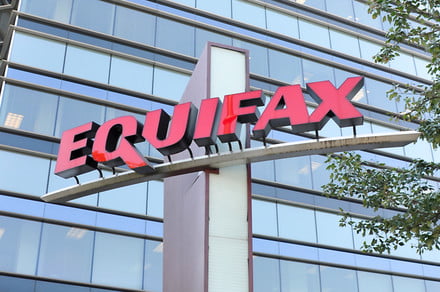Two years out from one of the most scandalous data breaches in recent memory, Equifax has reached a settlement with the Federal Trade Commission (FTC) and Consumer Financial Protection Bureau (CFPB) that requires the company to pay out at least $575 million, a number that sounds tremendous if you’re one of the mere mortals whose data was compromised; for Equifax, a company that reported revenue of $3.4 billion in 2018 (up one percent from 2017), it might feel more like a speeding ticket or an ATM fee.
If you’re one of the people whose data was stolen by the hackers, the settlement provides two ways of recompense: A monetary payout, or free credit monitoring for up to 10 years. Credit monitoring is a service in which a company keeps track of your credit behavior and alerts you of changes, such as a new account opening in your name.
If you were eager to pick up some quick spending money to soothe your financial anxiety, temper your expectations. As part of the settlement, Equifax set aside $31 million for those payouts, and that’s it. Although the maximum payout one could get from that pot was $125, so many people have filed for that option that the pie must be sliced up into ever smaller pieces.
The well has dried up so quickly that the FTC put out a statement on Wednesday advising consumers to file for the free credit monitoring instead. According to the settlement, you can receive four years of credit monitoring from the three major credit bureaus, and an additional six years of credit monitoring through Equifax. The FTC’s FAQ puts it bluntly: “You can still choose the cash option on the claim form, but you will be disappointed with the amount you receive and you won’t get the free credit monitoring.”
These services aren’t cheap. Experian normally charges $25 a month for credit monitoring, while Equifax offers a couple different credit monitoring services starting at $17 a month. Over the course of a decade, you could be looking at about $2,000 worth of services. If you’re not concerned about financial gain at this point, but merely want to cost Equifax as much as possible, this is probably the better option. While the fund for payouts is capped at $31 million, the FTC says that Equifax ponied up $300 million for credit monitoring. That’s a much bigger pie to serve.
At this rate, you probably won’t get enough money to buy a coffee (including tip), but what you can get is satisfaction. You can claim your pound of flesh … well, probably not a pound, more like an ounce, if that. But if we all carve a little slice off the great, swollen kraken that is Equifax, maybe the credit bureaus will treat consumer data with more caution in the future. Then again, maybe not; an octopus can regrow its arms, after all.
“But wait!” you might say. “Why would I want Equifax’s service? I don’t want anything to do with them at his point!” Though you may not want anything to do with Equifax, Equifax still has plenty of use for you. Alas, dear reader, you cannot escape the clutches of the credit bureaus. There are three major credit reporting agencies: Equifax, Experian, and TransUnion. They all hoover up data on how much debt individuals owe, how late they might be on payments, and so on, and they don’t need your permission to do it.
Although you are allowed to put a freeze on your credit reports — useful if you think someone has stolen your information — this doesn’t save you from the credit system. Any time you want to borrow from a bank or apply for a credit card, apartment, etc., whoever you’re doing business with will want your data from the credit bureaus, and you can’t control which ones they’ll ask.
As with so many industries these days, the major credit bureaus are essentially too big to fail. Barring stronger regulation in the future, the best consumers can hope for is to get what they can out of a settlement like this, so rather than collecting chump change, why not make Equifax work for you for the next decade?
We reached out to Equifax for more detailed information about the free credit reporting and steps it has taken to better protect data, but have not yet heard back. If you haven’t filed a claim for the Equifax settlement yet, we can show you how.
The views expressed here are solely those of the author and do not reflect the beliefs of Digital Trends.
Editors’ Recommendations
- Equifax agrees to pay $700 million settlement for its 2017 data breach
- Does Equifax owe you money? Here’s how you can find out
- How to file a claim for $125 if you were hit by the 2017 Equifax data breach
- How to avoid scams while filing your Equifax settlement claim
- Here’s how to protect yourself from the Capital One data breach

